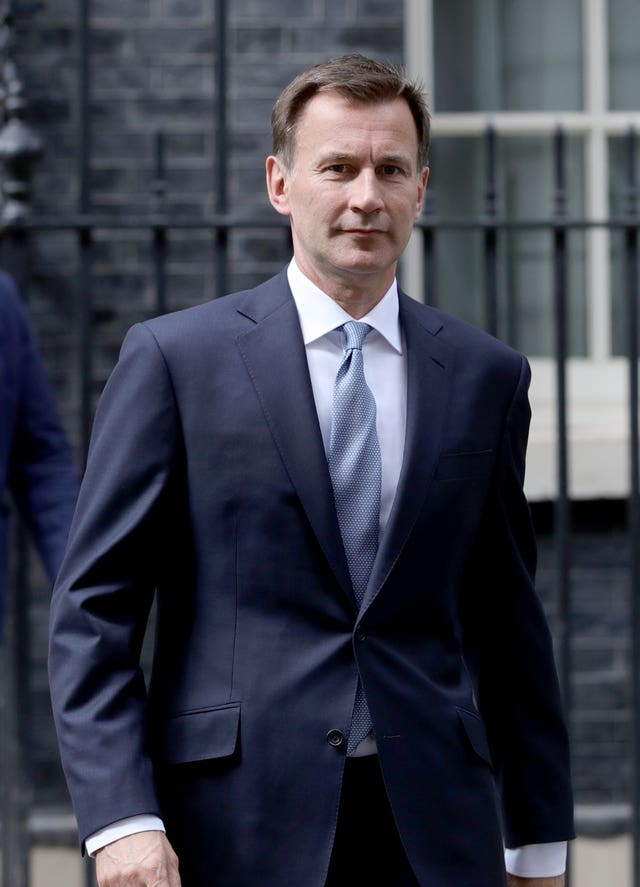NHS and social care staff burnout at ’emergency’ level, MPs say
MPs called for a ‘total overhaul’ of the way the NHS does workforce planning.

NHS and social care staff burnout has reached an “emergency” level and poses a risk to the future of services, MPs have warned.
In a highly critical report, the Health and Social Care Committee called for immediate action to support exhausted staff who have worked throughout the Covid-19 pandemic, but pointed to long-standing, unresolved issues even beforehand.
For example, the Royal College of Nursing (RCN) told MPs that, prior to the onset of the pandemic, there were 50,000 nursing vacancies in the UK, while the Royal College of Psychiatrists has said a lack of staff is one of the biggest causes of workforce burnout in mental health services.
“After the pandemic, which revealed so many critical staff shortages, the least we can do for staff is to show there is a long-term solution to those shortages, ultimately the biggest driver of burnout.”
The MPs said that, while issues such as excessive workloads may not be solved overnight, staff should be given the confidence that a long-term solution is in place.
“The way that the NHS does workforce planning is at best opaque and at worst responsible for the unacceptable pressure on the current workforce which existed even before the pandemic,” the study said.

The MPs said that without a proper public statement on the staffing needs for the next decade, “the shortages in the health and care workforce will endure, to the detriment of both the service provision and the staff”.
They said they “recommend again” that Health Education England publishes “objective, transparent and independently-audited” annual reports on workforce needs for health and social care that cover the next five to 20 years.
“An absence of proper, detailed workforce planning has contributed to this, and was exposed by the pandemic with its many demands on staff.
“However, staff shortages existed long before Covid-19.
“Staff face unacceptable pressure with chronic excessive workload identified as a key driver of workforce burnout.
“It will simply not be possible to address the backlog caused by the pandemic unless these issues are addressed.
“Achieving a long-term solution demands a complete overhaul of workforce planning.
“Those plans should be guided by the need to ensure that the long-term supply of doctors, nurses and other clinicians is not constrained by short-term deficiencies in the number trained.
“Failure to address this will lead to not just more burnout but more expenditure on locum doctors and agency nurses.”
But even before the crisis, the NHS faced shortages of around “one in 10 or one in 12 staff”, the MPs’ report added.
Meanwhile, in adult social care, MPs heard during their inquiry that the situation is “fragile”.
Skills For Care estimated that 7.3% of roles in adult social care had been vacant during the financial year 2019-20, equivalent to around 112,000 vacancies at any one time.
Professor Martin Green, chief executive of social care membership body Care England, welcomed the findings of the report but stressed the sector needed more than just financial support.
He said: “Money alone is not the answer. We need to ensure that social care is established as a career with the kudos associated with due professionalisation and one way to deliver that would be a ten year plan for workforce akin to that of the NHS.”

“We simply don’t have enough GPs or other members of the practice team to meet demand and general practice is only set to get busier as we support our communities’ recovery from the pandemic.”
Dr David Wrigley, the British Medical Association’s (BMA) well-being lead, said: “Health and care staff suffered stress and work-related anxiety before the pandemic but it is now far more serious and we believe the current level of staff burnout and stress presents a worrying risk to the future functioning of the health and care system and safe patient care.
“There’s an urgent need to address the severe workforce crisis facing health and care services, and – as called for by the BMA and others – the report also calls for continuous and transparent assessments of workforce shortages and future staffing requirements.”
The RCN’s acting general secretary, Pat Cullen, said: “The unprecedented demand on nursing staff during the pandemic has had a huge impact on their own well-being.
“But, as this report shows, the cracks in the systems designed to look after nursing staff appeared years ago.”





